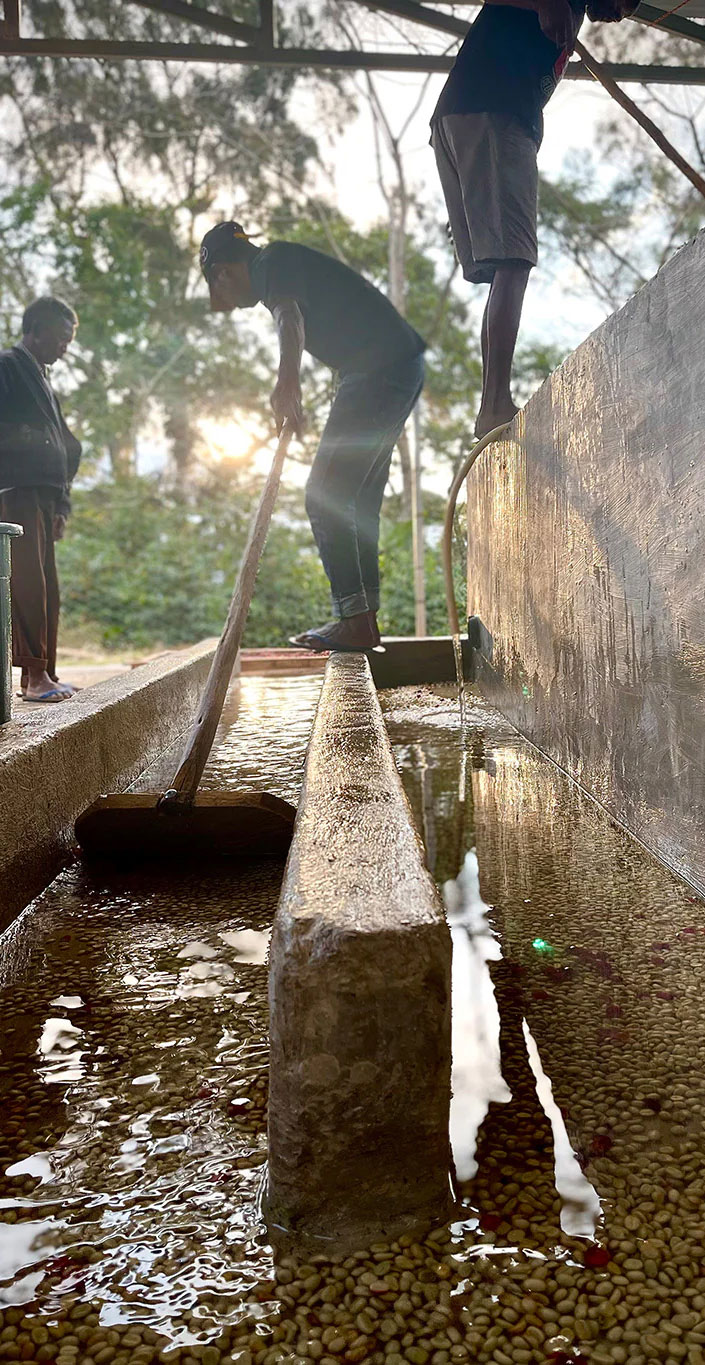Timor-Leste
Bringing speciality coffee to a worldwide audience
Daniel Leong is a coffee entrepreneur who sits on the Board of Directors of Associação Café Timor of Timor-Leste. Daniel highlights what the speciality coffee industry brings to the Timorese economy.
 Daniel Leong is a coffee entrepreneur who sits on the Board of Directors of Associação Café Timor of Timor-Leste.
Daniel Leong is a coffee entrepreneur who sits on the Board of Directors of Associação Café Timor of Timor-Leste.What does it take to make one cup of coffee?
It takes 10 months of work and 20 people to make one cup of coffee. And in that cup of coffee you have 120 beans. That's after harvesting cherries, screening defects, optimising flavour through roasting and brewing, and undertaking quality control. And all this comes down to about 10 minutes of sipping.
How did coffee production become widespread in Timor-Leste?
Coffee was introduced to Timor-Leste in the 1800s from Portugal. It was in the 1950s that the Portuguese Governor implemented a coffee rejuvenation plan that helped see the crop adopted across eight out of the 13 districts on the island.
How important is coffee for the Timorese economy today?
Currently, coffee is Timor-Leste's top agricultural export. Some 38,000 households work in coffee farming. It is the second-largest export after oil and gas. It plays a very important role in our economy, helping to diversify our exports, providing livelihoods for a significant portion of our population, and contributing to overall economic stability. Coffee is a big deal to us.
In 2023, Timor-Leste exported 12,000 tons of coffee, mainly to the United States and to Europe. But this compares with global coffee production of about 10 million tonnes. Brazil is the top coffee producer, accounting for approximately one-fifth of global production. It would take Timor-Leste 150 years to produce what Brazil does in one season.
What is so special about Café Timor?
Timor comes from the Hebride Timor. That is a unique variety, a crossbreed between an Arabica and a Robusta plant. It is the dominant variety that is grown on our mountains. You can also find it in Brazil, Colombia, Costa Rica, Ethiopia, Honduras, India and Indonesia. It is resistant to coffee leaf rust, a fungal virus that plagued the industry in the 1970s and 1980s.
What are some of the challenges facing the coffee industry in Timor-Leste?
We have been struggling to keep up with sustainable volume production, quality and innovation. Limited resources in farm management, difficulty in road access, and inconsistent rainfall led to a gradual decline in yields. But we have made significant strides. We have created an Associação Café Timor and started to focus on speciality coffee. With the help of the Government, we have been working to position Timor-Leste as an innovator of business models and partnerships.
What is the role of partnerships in supporting coffee production?
Partnerships help to reduce risk. They also support risk management analysis and strategy. For example, the longstanding partnership between Australia's Market Development Facility, the Government of Timor-Leste, the coffee association and the private sector allows us to respond to changing conditions, change commodity prices, and to improve resilience to pandemics and climate change. And this partnership has also been instrumental in raising the profile of Café Timor.
First, it helped with establishing a brand. It is not just 100% Arabica anymore. It is a hybrid variety with Aleo grown at 1,000 metres above sea level and fermented with a wash process over four days.
Second, the partnership helped us to focus on speciality coffee, allowing us to break through price ceilings and increase economic resilience. One of the key pillars of speciality coffee is traceability, which gives recognition to the coffee farmers and other key actors in the value chain. It also recognizes the role of women in coffee production.
Third, the partnership helped us to better understand the implications of climate change and to put in place measures to ensure sustainability. Traditionally, you never know what you're going to get because of the changing weather. In fact, there are various actions we can take to improve our yields.

What are some of the results so far?
In addition to representing the association of Café Timor, I am also a co-founder of Kape Diem Coffee Lab and Orijem Timor, both focusing on speciality coffee. We started with Kape Diem Coffee Lab in 2018, asking a lot of questions. Where does this coffee come from - which district, which village, which family? From there, we delved into research, learning, and sharing information about coffee quality. And our development partners have been instrumental in helping us to scale up the production.
In 2021, Orijem Timor was born to increase the operation from 10 coffee farming families to 600. It is now our export arm, linking our coffee to the Australian market.
But we are not finished yet. With Timor-Leste joining the WTO, the effect is likely to be more innovation and change than we could possibly imagine.